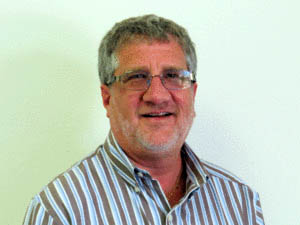Around Town … with Robert Airoldi: Garlic Festival Association plans to hand out grants to nonprofits
Grants will be from $500 to $5,000 per application per year.
![]()

By Robert Airoldi

Robert Airoldi
In staying true to the mission statement of the Gilroy Garlic Festival Association, the board of directors are proud to give funds to the local non-profits that have helped with the success of the festival for the past 40-plus years. The GGFA has given millions of dollars during the past decades and this year we will be donating $40,000 through grants and volunteer organization payouts.
Previously, volunteers of local nonprofits have worked before, during, and after the festival and “paid” based on the amount of their hours worked.
With the inability to host large event in 2022, the Gilroy Garlic Festival Association has pivoted to donating funds through a grant process in addition to the volunteer work payouts.
Gilroy Garlic Festival President Jeff Speno encourage local nonprofits, especially those that were financially impacted, to apply for one of these grants.
Candidates for this grant should be based in Gilroy and the surrounding area.
Each nonprofit organization will sign a contract guaranteeing completion of requirements (Terms of Grant); and then must complete and show proof for a list of marketing tasks targeting each organization’s constituency of supporters.
These would consist of:
- Prominent presence of the GGFA on the organization’s website as a sponsor
- Minimum social media posts of at least once every eight weeks over a specified period of time
- Minimum number of dedicated e-blasts to the organization’s database
Grants will be from $500 to $5,000 per application per year.
Applications must be emailed to the GGFA by 9 p.m. Sep. 30 to [email protected]
 Want to learn more about the people and animals who have made their homes along Coyote Creek both long ago and today? Then join others for the Coyote Creek Habitat Day from 10 a.m. to 1 p.m. Saturday, Aug. 20 for a free family-friendly day of activities, games, and wildlife connected with the creek.
Want to learn more about the people and animals who have made their homes along Coyote Creek both long ago and today? Then join others for the Coyote Creek Habitat Day from 10 a.m. to 1 p.m. Saturday, Aug. 20 for a free family-friendly day of activities, games, and wildlife connected with the creek.
The day will include an opportunity to meet wild nocturnal animals from the Wildlife Education & Rehabilitation Center, and participants can become wildlife detectives through hands-on activities like dissecting owl pellets and more.
- Kids discover history as little archaeologists by digging up pieces of the past
- Make the nature connection by taking a hike
- Bike along the Coyote Creek Parkway (personal bikes are welcome)
- Participate in a self-guided scavenger hunt and other nature activities
- Meet Morticia (California King Snake) up close and personal
The event will take place at Coyote Creek Visitor Center at Anderson Lake County Park, 19245 Malaguerra Ave.
Admission to the Coyote Creek Habitat Day is free. Please consider walking, biking, carpooling, or taking public transit. A free shuttle is available from the parking lot at the nearby Live Oak Picnic Area.
For more information, email [email protected] or visit www.parkhere.org to learn more about other summer programs.
 The Luchessa Avenue Bridge reopened earlier this month after a month-long closure, but additional detours will be in place throughout August as crews continue work on a water pipeline project.
The Luchessa Avenue Bridge reopened earlier this month after a month-long closure, but additional detours will be in place throughout August as crews continue work on a water pipeline project.
More closures on West Luchessa Avenue were planned to begin Aug. 9. Westbound West Luchessa Avenue will be closed between Thomas Road and Greenfield Drive, while the eastbound direction will remain open throughout the project, according to a release from Valley Water.
In March, Valley Water and its contractor began work on the South County Recycled Water Pipeline Project that will expand the distribution of additional recycled water in Gilroy, serve new customers, improve service delivery, and support future expansions.
Work includes the construction of 3.5-miles of pipeline, connection to the existing recycled water system and recycled water pipeline, and upgrading the pipeline connection to the South County Recycled Water Authority wastewater treatment plant facility.
The $23-million project, partially funded by a $5.7-million grant from the U.S. Bureau of Reclamation, is expected to be completed by the end of summer 2023.
